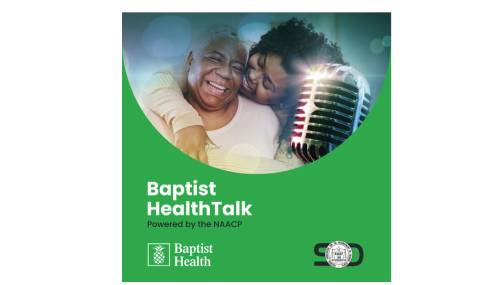
Nutrition
Sodas, Juices and Cancer Risk: The Growing Case Against Sugary Drinks
2 min. read
Sugary drinks, particularly sodas and juices, fuel weight gain and have contributed to the U.S. obesity epidemic among adults and children, physicians and public health officials agree. Now, new research is strengthening the link between these sweetened beverages and a higher risk of some cancers.
The new study does not prove cause and effect, but researchers found that drinking as little as 3 to 4 ounces of sugary drinks each day was associated with an 18 percent rise in overall risk for cancer.
The average can of sugar-sweetened soda, fruit juice, or sweetened tea has about the equivalent of 10 teaspoons of sugar. Four grams of sugar equals 1 teaspoon.
“Being mindful of the sugar content in drinks is the best way to reduce their contribution to your daily calories consumption and avoid harming your health,” said Cathy Clark-Reyes, a registered dietitian with Baptist Health Primary Care. “Sugary drinks are empty calories. They don’t have any vitamins or minerals. Even 100 percent juice usually has no less than 15-20 grams of sugar per serving.”
The new study was led by researchers from Sorbonne Paris Cité University. The team collected data on more than 100,000 French men and women, average age 42, who took part in a national study. The study included both sugary sodas and 100 percent fruit juice. These sweetened drinks were “significantly associated with the risk of overall cancer.” Artificially-sweetened drinks, like diet soda, were not llinked to increased cancer risks in this study.
During the study’s five-year span , 2,193 cases of cancer were diagnosed among the participants, representing about 22 cases per 1,000 people. Most of those cases were among people who regularly consumed sugary drinks.
Sugary drinks were defined as beverages that contained more than 5 percent sugar, which included fruit juices that had no added sugar.
Juicing can actually backfire if you’re trying to lose weight because dieters tend to add more fruits to a juice concoction or smoothie. By doing so, you may be increasing sugar intake — without getting the full benefit of the fruit’s natural nutrients. By eviscerating fruits in a blender, you remove or degrade the food’s vital nutrients, including fiber which helps the body maintain a healthy weight and lowers your odds of heart disease.
“People don’t need juice, even if it’s ‘100% pure’ juice,” says Lucette Talamas, registered dietitian with Community Health at Baptist Health South Florida. “Parents often give their children juice in a bottle. But they should be getting whole fruits and water separately. The body does not need juice — it’s mostly liquid sugar. We need to be cutting back on all forms of added sugar. Even though juice can be all natural, it’s still too much concentrated sugar.”
U.S. dietary guidelines for Americans recommends limiting calories from “added sugars” to no more than 10 percent of calories each day. That’s 200 calories, or about 12 teaspoons, for a 2,000 calorie diet.
Consumption overall of too much added sugars in the diet — fueled largely by sugary drinks — can contribute to heart disease, diabetes, tooth decay and even cancer. Drinking sugary beverages every day for six months increases fat deposits in the liver by 150 percent, which directly contributes to diabetes and heart disease, previous studies have found.
Healthcare that Cares
Related Stories
View All Articles
Baptist HealthTalk NAACP Edition: Heart Health and the Black Community
February 28, 2024
30:21

Treating Health Disparities: The Link Between Black History & American Heart Observances
February 6, 2024
3 min. read
